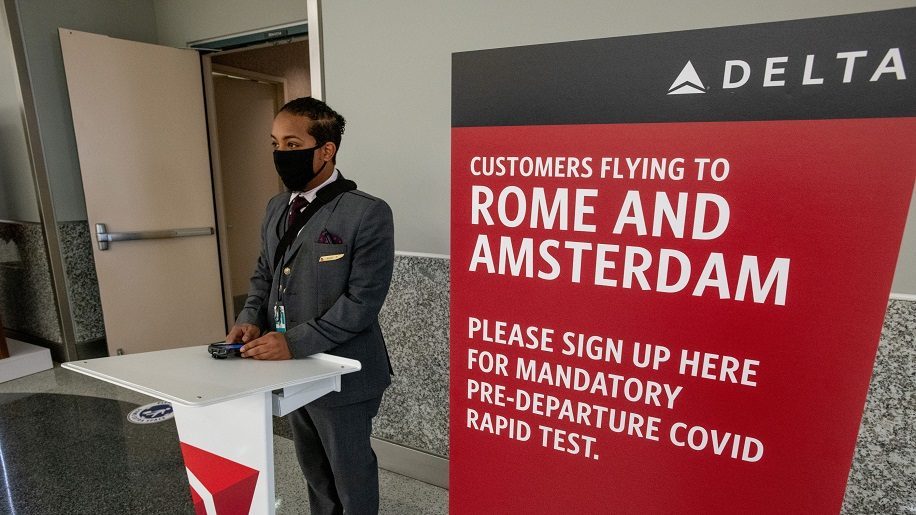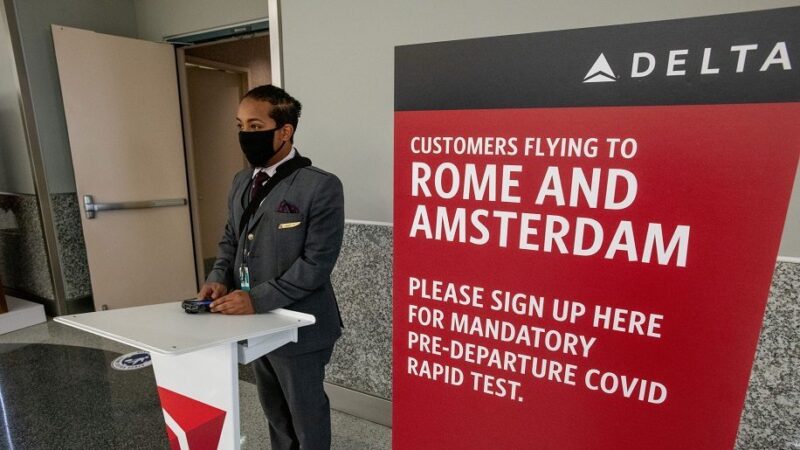Research Shows Preflight Tests Reduce COVID Risks
Delta study shows a negative test result prior to travel "significantly decreases rate of COVID-19 infections on board"
September 15, 2021

Preflight testing for COVID-19 could significantly decrease the risk of onboard infections for airline passengers, according to a study conducted by Delta Air Lines, the Georgia Department of Health and Mayo Clinic.
The peer-reviewed study shows that COVID tests administered before travel reduce the risk of exposure “to a level that is significantly below active community infection rates.”
The analysis used real-world data from around 10,000 travelers on Delta’s COVID-tested flights between New York JFK, Atlanta and Rome Fiumicino.
The results show the risk of exposure following a negative test 72 hours before a flight is less than 0.1 per cent. For example, an average community infection rate of 1.1 percent would translate to about one in 100 people. By contrast an infection rate on COVID-19 tested flights of 0.05 percent would be five in 10,000 passengers.
The findings confirm previous simulation models of viral transmission on planes, according to Dr. Henry Ting, Delta’s chief health officer.
“This real-world data – not simulation models – is what governments around the world can use as a blueprint for requiring vaccinations and testing instead of quarantines to re-open borders for international travel,” Ting noted.
Ting’s comments come as the Biden administration mulls a vaccine mandate for air travel on domestic flights. The suggestion by National Institute of Allergy and Infectious Diseases director Dr. Anthony Fauci made during a podcast interview last week has brought criticism from travel industry leaders.
According to Delta CEO Ed Bastian, scientific studies such as the one just released confirm limited spread of COVID in the air transport system, meaning mandatory vaccinations for domestic travel would not significantly reduce the risk of infection during flight, but would create a “logistical snafu” for the industry and its customers, Bastian said.
Air travel risk varies depending on such factors as case rates and vaccination rates, masking and other factors, Ting explained “But the data collected from this study show that the routine use of a single molecular test within 72 hours before international travel for unvaccinated individuals significantly mitigates the risk of COVID-19 exposure and transmission during airline travel,” he said.
“When you couple the extremely low infection rate on board a COVID-19-tested flight with the layers of protection on board including mandatory masking and hospital-grade air filtration, the risk of transmission is less than one in one million between the United States and the United Kingdom, for example,” Ting said, adding, “These numbers will improve further as vaccination rates increase and new cases decrease worldwide.”




